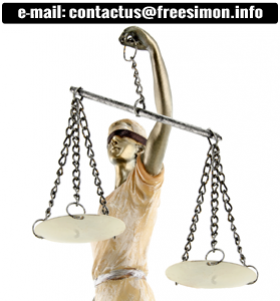How innocent people are wrongfully convicted
If you have been accused or arrested for a crime, you are at the beginning of what could become a long journey through the criminal justice system. The process may vary somewhat from state to state.
If the case goes beyond the committal phase to trial, this is when the justice machine appears to kick in. In reality the very fact that your case went to the committal phase is an indication that the prosecution has quite likely made up its mind. The material that will be presented to the media has been decided on and the people who produce the content are already processing and preparing it. The content is very unlikely to be flattering and is more likely to present you in as poor a light as possible. Character assassination is a powerful weapon.
Many are naive enough to believe that innocence is sufficient to ensure that the verdict will be not guilty. We were of the same opinion but recent events have shown us just how wrong this belief is. The adversarial process does not appear to be about justice, it appears to be more about winning, hence the term “adversarial”.
The methods, elements or steps covered will not be in any specific format or order. Research, personal experience and heated debate may be credited with contributing to the content on this page.
Informers “Jailhouse Snitches”
Informers have been around for a long time. They’re often convicted and housed in a correctional institution or they’re waiting to be charged. The allure for an informer is that they are offered a reward for their information. This could be a reduction in their sentence or a favourable mention in their pending trial. They will usually claim to have either overheard a confession or have first hand knowledge of a crime. This has in many parts of the world given rise to an interesting profession, the “Criminal Information Broker”. This “Criminal Information Broker” will provide a convicted inmate with information pertinent to another inmate who is very likely to be a “pre-trial detainee” for a price. In exchange for testifying against the “pre-trial detainee” the convicted inmate will seek to get a reduction in their sentence. It would be very easy in many of these cases to ensure that the “informer” was housed with the “selected inmate“. It would then be up to the informer to lure the “selected inmate” into making incriminatory statements and it is quite likely if this does not happen, that the informer may claim it did anyway. While you would expect this to be fraught with danger for the prosecution as the informer may go either way, on the whole it appears to work more favourably for the prosecution than the defence. Links pertinent to informers:
Report of the Kaufman Commission
Trial Exposes Culture of Snitches
Jailhouse informants
Snitching
How Snitches Contribute to Wrongful Convictions
Image Tarnishing
This is the practice of publishing information that aligns the defendant with illegal or immoral activities. It does not matter whether the information is tenuous or outright fiction. This is done in order to tarnish the image of the defendant(s). The intensity of media coverage if unfavourable will have a significant effect on how a defendant is perceived. It is worth noting that for the process of tarnishing an individuals image to be truly effective we have to either be gullible, indifferent or a bit of both.
There are vital ingredients for the preceding to be most effective. We the public must believe what we are told without question. It does not mater who’s saying it, why they are saying it and on what basis. Hearsay is a powerful tool – we must pass on what we have heard ‘in confidence’ to other people, the more credible we are, the more weight this has. Individuals tend to add their own thoughts from personal experiences, in this case given the limited information that the individual is relying upon this tends to be both ignorant and prejudiced.
The rise of social media has given individuals an easy tool to easily pass on rumours or allegations no matter how poorly researched. They can add a sprinkling of innuendo, tweet, retweet and post on Facebook.
However, our most important contribution is that we must do nothing to challenge what others are saying. We stop being inquisitive.
We all have a role to play and this includes the media and investigative journalists, who really should be playing a significant role in helping to correct miscarriages of justice. They should highlight weaknesses in forensic science, instances where misleading arguments have overstated the probative value of testimony. Expose the deliberate mishandling of evidence and fraudulent experts. Publicise instances where exculpatory evidence has been withheld from the defence. Petition your local representative. It is difficult to envisage a greater motivator for a member of parliament than a vote. If the voting electorate can be educated to a point where they are incensed at the injustice that can occur within a justice system, the legislators will take notice and action. Interestingly, many studies indicate that people are more likely to consider you guilty than innocent.

